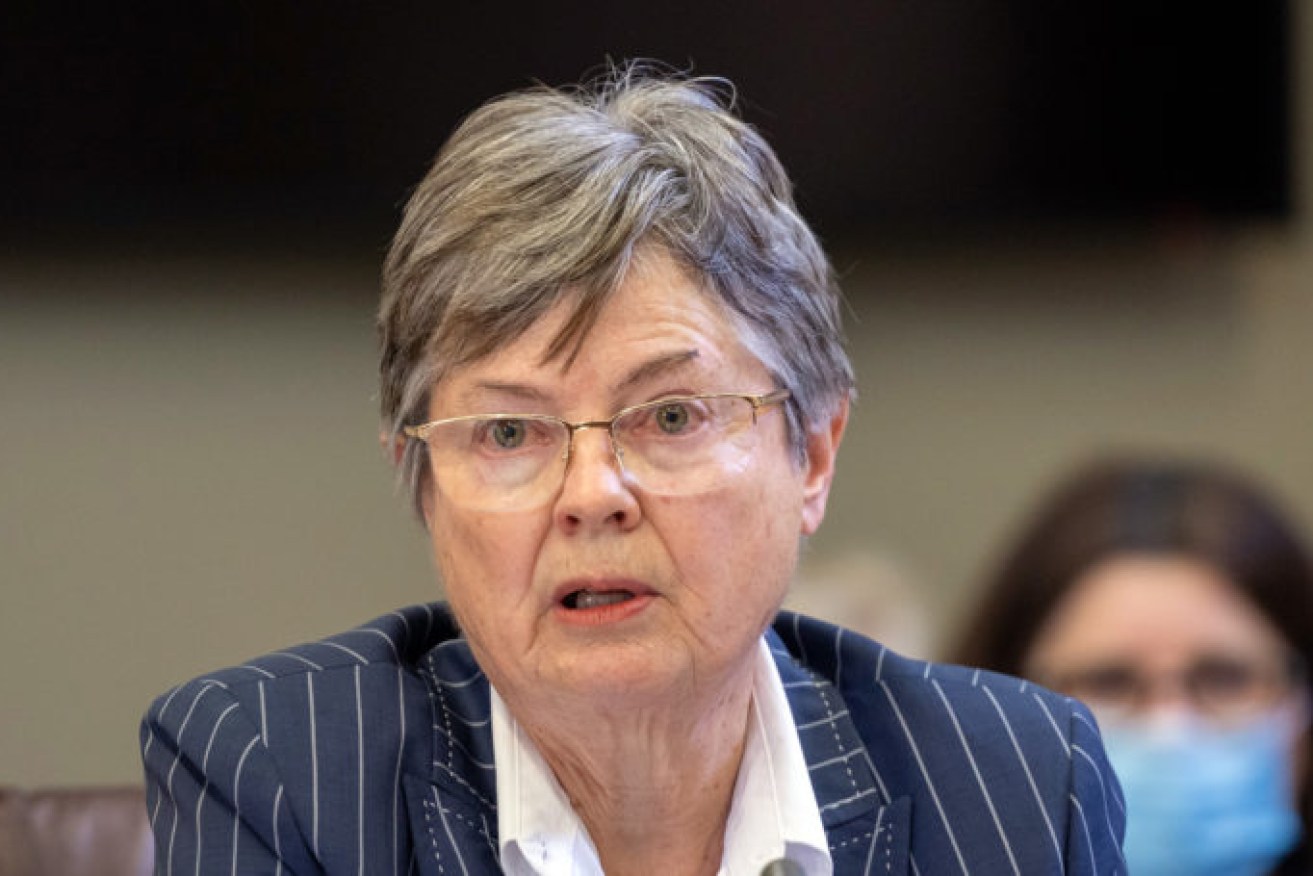New ICAC laws set to push MPs beyond scrutiny for misconduct
When new ICAC laws come into force in South Australia tomorrow, most members of parliament will be pushed beyond the reach of any misconduct investigations by the anti-corruption body, but also the Ombudsman.

Independent Commissioner Against Corruption Ann Vanstone. Photo: Tony Lewis/InDaily
The new legislation tightens the definition of misconduct to cover only “serious” and “intentional” breaches of codes of conduct, with a previous clause allowing the definition to cover other instances of misconduct deleted from the Act.
Given there is still no code of conduct for members of the South Australian parliament, only for ministers, the passage of the new laws means backbench politicians will not be able to be investigated for misconduct by the Ombudsman, who takes over misconduct and maladministration inquiries under the new laws.
ICAC Commissioner Ann Vanstone, who has been fiercely critical of the legislative changes, on Friday told a parliamentary committee set up to draft a code of conduct for MPs that the new laws created a “deficit” that prevented the Ombudsman from investigating the conduct of parliamentarians.
“Until there is such a code it’s difficult to see that the Ombudsman would have any jurisdiction in relation to members of parliament,” she said.
The committee to whom she was giving evidence was set up in March in response to damning findings from an Equal Opportunity Commission review into harassment in parliament.
That review recommended that parliament establish a code of conduct for MPs, noting that South Australia was the only state or territory jurisdiction in Australia that did not already have a behavioural code for parliamentarians in place.
The lack of a code was already making it difficult for the ICAC to investigate allegations of misconduct against MPs. The new legislation appears to also rule out Ombudsman’s investigations.
Vanstone told the review that the Office for Public Integrity had received a total of six matters alleging harassment or bullying related by members of parliament over 2019 and 2020, but of those, three were not pursued, in part because there was no code of conduct that explicitly defined behavioural standards.
She reiterated that the Office for Public Integrity “does receive a number of complaints about Members of Parliament”, but “not a lot can be done about those”.
“That leaves something of a deficit,” she said.
Compounding the problem, Vanstone argued, was the insertion of the words “serious” and “intentional” under the new legislation.
“An attempt to make a qualitative assessment as to the intention of anyone and to attempt to categorise an allegation as serious could be difficult in relation to some matters,” she said.
“I’m not saying there wouldn’t be obvious cases one way or the other, but perhaps the majority of cases would present some sort of difficulty.”
When Attorney-General Vickie Chapman moved a motion in March to set up a committee to respond to the Equal Opportunity Commission’s findings, she left out a requirement to draft an MPs’ code of conduct.
It was only after Labor frontbencher Katrine Hildyard amended Chapman’s motion that the committee was explicitly tasked with drafting a code.
InDaily asked the committee’s chairperson, House of Assembly Speaker Josh Teague, when he envisioned the draft MP code of conduct would be finalised and how it would be enforced, but he did not respond.
Attorney-General Vickie Chapman would not comment on specific questions from InDaily about the apparent void in misconduct scrutiny for MPs.
Instead, her office provided a statement from a State Government spokesperson detailing moves to establish a code of conduct for MPs and emphasising that the Government “is accountable to the Parliament”.
“In March, the Attorney-General successfully moved a motion to establish a Joint Committee to inquire into and report on the recommendations arising from the Equal Opportunity Commissioner’s Report into Harassment in the Parliament Workplace,” a government spokesperson said.
“The Committee has been explicitly tasked with drafting a Code of Conduct for Members of Parliament, which will ultimately apply to all MPs and will act in addition to the already binding Ministerial Code of Conduct, which covers all Cabinet Ministers.
“This Committee – comprising of members from all sides of politics – is currently hearing evidence and will report back to Parliament in due course.
“As the State Government is accountable to the Parliament, it cannot pre-empt the outcome of this Committee.
“However, the public can be assured that there are mechanisms to address complaints made against Members of Parliament, including the Commissioner for Equal Opportunity, Privileges Committees of the Parliament or, in criminal matters, the South Australian police and the Courts.”
Shadow Attorney-General Kyam Maher similarly refrained from commenting about the apparent immunity MPs have from misconduct investigations.
“Misconduct provisions of the ICAC Act apply to public officers, including Ministers,” he said.
“Labor is on the record as supporting calls for a Code of Conduct for Members of Parliament.”
The author of the ICAC changes, SA-Best MLC Frank Pangallo, insisted that the changes weren’t intended to shield MPs from misconduct investigations, but he appeared to accept that there would be a void in the state’s integrity mechanisms until a code of conduct was introduced.
He said it was not his intention to ensure that MPs were immune from being investigated for misconduct, saying parliament was currently considering a “range of measures” to deal with the potential misconduct of MPs.
“Under the previous Act, a mere speeding offence could have resulted in an ICAC investigation for corruption, misconduct and/or maladministration,” he said.




